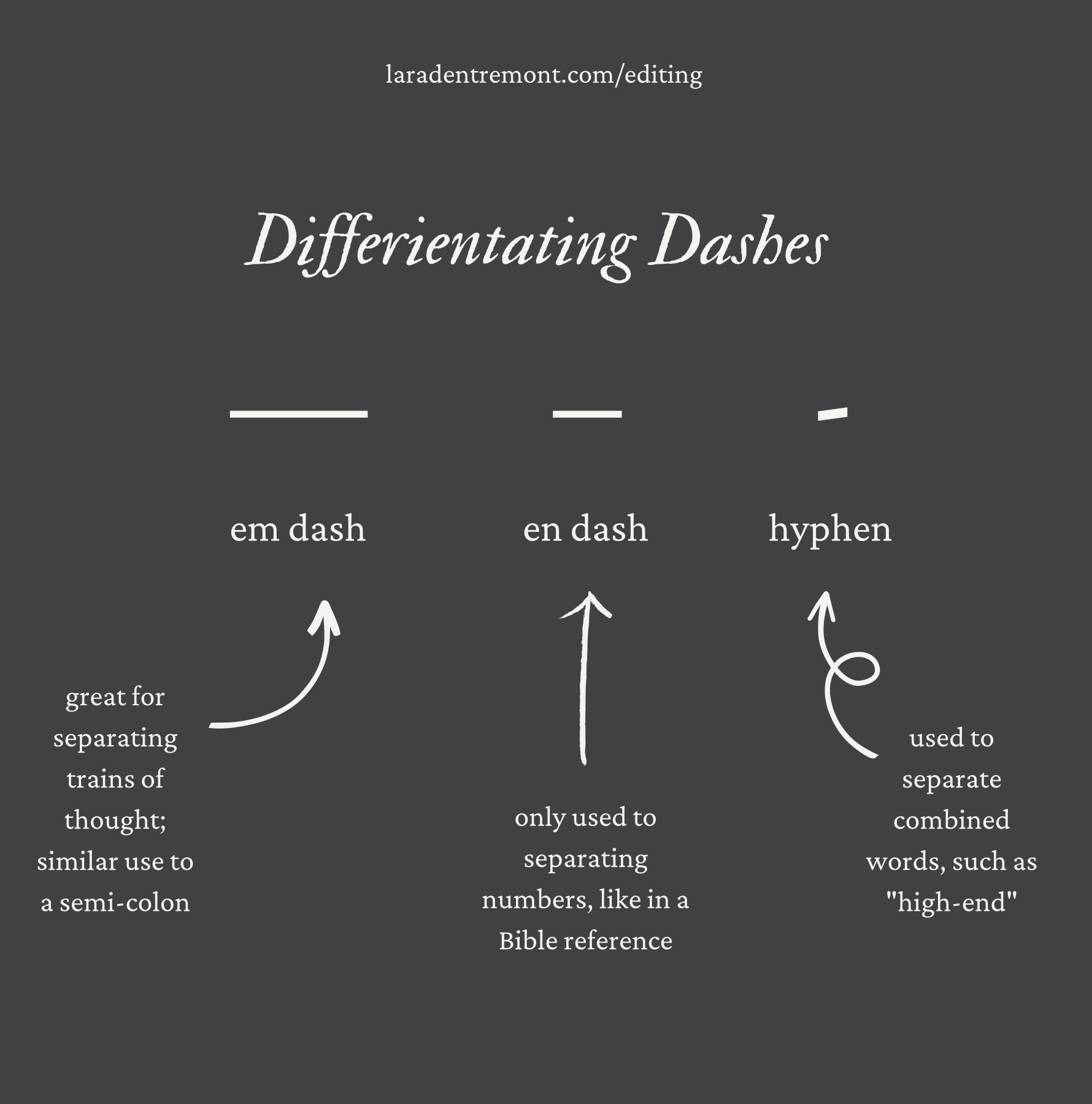The Difference Between the Dashes in Writing
Almost every time I edit a piece, a large portion of my time is used in changing out improperly used dashes. There’s three main dashes, and I don’t remember any teacher ever explaining the uses and differences between them to me. Let’s take a look.
Quick Definitions and Uses
Em Dash (—): This is used to separate trains of thought or make an aside comment. “I was going to write my report today—then somebody broke the laptop.”
En Dash (–): This is used to separate numbers and show the span between between them, such as in Bible references or periods of time elapsing. For example, “Ephesians 4:4–6” or “She needs 30–40 sheets of paper.”
Hyphen (-): This tiny line is used to separating combined words that aren’t always typically combined. “She had that I-know-who-did-it-but-I’m-not-telling look on her face” or “This is a high-end furniture shop.”
How to Implement
I used to write an entire article with the wrong dashes, then copy the correct dashes from the symbols app on my laptop, and paste the right ones throughout the piece. This took far too long and left room for error. Instead, strive to write it properly the first time with key commands. Depending on the operating system of your device (Apple, Microsoft, Ubuntu), the key code will vary, so I suggest Googling it.
Why Does This Matter?
Imagine you’re an editor at a publication receiving pitches and submissions. You likely have hundreds of emails to sift through. As you sort through the choices, you need to save time and have a system for easily sorting through all these inquiries.
If you receive a piece of writing filled with the wrong kinds of dashes all throughout, and you know that you’ll have to take the time to change all of them, will you choose this piece?
Writing with the proper use of punctuation tells an editor that you don’t need your hand held through the entire writing process, and it tells a reader that you are a trustworthy source of information. Imagine if you landed on a website spotted like a polkadot shirt with spelling mistakes or lack of capital letters. Wouldn’t these flaws signal to you that the writer does not know what they are talking about?
If we wish to gain trust from readers and editors, learning the correct grammar and punctuation is essential.

